Awards
The John D. Rockefeller 3rd Award and the Blanchette Hooker Rockefeller Award recognize, respectively, the achievements of arts practitioners and philanthropists. Candidates for the awards are selected by nomination, and the awards are given to honor remarkable accomplishment and continued leadership in fields related to ACC’s mission.
John D. Rockefeller 3rd Award
The John D. Rockefeller 3rd Award is given to an arts practitioner to recognize outstanding professional achievement. It commemorates John D. Rockefeller 3rd's lifelong interest in Asian art and culture.
ACC presents the award biannually to an individual from Asia or the United States who has made a significant contribution to the international understanding, practice, or study of the visual or performing arts of Asia. The monetary award, currently $50,000, is an investment in the continued advancement of the awardee’s work.
Select Awardee
- Takashi Murakami (2024)
- Cai Guo-Qiang (2021)
- Midori (2021)
- Kengo Kuma (2019)
- Shen Wei (2017)
- Duk Hyung Yoo (2015)
- Amna Kusumo (2013)
- Pichet Klunchun (2013)
- Chinary Ung (2013)
- Samina Quraeshi (2010)
- Ratan Thiyam (2008)
- Nestor O. Jardin (2007)
- Lin Hwai Min (2006)
- Mella Jaarsma and Nindityo Adipurnomo (2005)
- Judy Mitoma (2003)
- Yang Meiqi (2002)
- Ellen Stewart (2000)
- Proeung Chhieng (1999)
- Nguyen Van Huy (1998)
- Beate Gordon (1997)
- Ma Chengyuan (1996)
- Setsu Asakura (1995)
- Donald Richie (1993)
- Kapila Vatsyayan (1992)
- Chou Wen-chung (1991)
- Sherman E. Lee (1990)
- James R. Brandon (1988)
- Jose Maceda (1987)
- John M. Rosenfield (1986)
- Takashi Murakami (2024)
- Cai Guo-Qiang (2021)
- Midori (2021)
- Kengo Kuma (2019)
- Shen Wei (2017)
- Duk Hyung Yoo (2015)
- Amna Kusumo (2013)
- Pichet Klunchun (2013)
- Chinary Ung (2013)
- Samina Quraeshi (2010)
- Ratan Thiyam (2008)
- Nestor O. Jardin (2007)
- Lin Hwai Min (2006)
- Mella Jaarsma and Nindityo Adipurnomo (2005)
- Judy Mitoma (2003)
- Yang Meiqi (2002)
- Ellen Stewart (2000)
- Proeung Chhieng (1999)
- Nguyen Van Huy (1998)
- Beate Gordon (1997)
- Ma Chengyuan (1996)
- Setsu Asakura (1995)
- Donald Richie (1993)
- Kapila Vatsyayan (1992)
- Chou Wen-chung (1991)
- Sherman E. Lee (1990)
- James R. Brandon (1988)
- Jose Maceda (1987)
- John M. Rosenfield (1986)

2024
Takashi Murakami
Artist, Founder and President
Kaikai Kiki Co., Ltd.
Born in Tokyo in 1962, Murakami completed the doctoral program in Fine Arts at Tokyo University of the Arts in 1993. In 2000, he proposed “Superflat", a concept/theory of contemporary visual culture that connects traditional Japanese art with the flatness of anime and manga while also referring to the state of Japanese society. In 2001, he established Kaikai Kiki Co., Ltd., of which he is the president.
Murakami received an ACC Fellowship in 1994, during which he participated in the International Studio Program at the Institute of Contemporary Art, MoMA PS1 in New York. In 2024, he opened Takashi Murakami Mononoke Kyoto, his first solo exhibition in Japan in eight years, at Kyoto City KYOCERA Museum of Art, where around 170 of his new works are on view. He also has approximately 120 new works reinterpreting Utagawa Hiroshige's 100 Famous Views of Edo on view at the Brooklyn Museum.
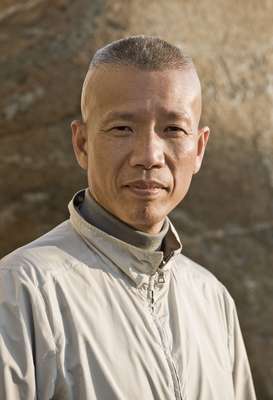
2021
Cai Guo-Qiang
Artist, Founder
Cai Foundation
Cai Guo-Qiang (b. 1957, Quanzhou, China) works across artistic mediums, including drawing, painting, installation, video, and performance. Trained in stage design at the Shanghai Theatre Academy, Cai began to experiment with gunpowder painting in his hometown, Quanzhou, and later in Japan from 1986 to 1995. Experimentation with scale and form of these gunpowder works led to the development of his signature outdoor explosion events. Drawing upon Eastern philosophy and contemporary social issues as a conceptual basis, his often site-specific artworks respond to local cultures and histories and establish a dialogue between viewers and the universe around them. His explosion art and installations are imbued with a force that transcends the two-dimensional plane to engage with society and nature.
Cai Guo-Qiang received an ACC Fellowship in 1995, during which he created his first work in the United States—a miniature mushroom cloud at the Nevada Nuclear Test Site. He has since been awarded the Venice Biennale’s Golden Lion (1999), the Hiroshima Art Prize (2007), and in 2012, received both the Praemium Imperiale and the U.S. Department of State Medal of the Arts for commitment to international cultural exchange. His explosive work has been featured in the 2008 Beijing Olympics opening and closing ceremonies, the Metropolitan Museum of Art (2006), the Solomon R. Guggenheim Museum (2008), and Netflix documentary Sky Ladder (2015), as well as museums throughout Europe in the traveling series Individual’s Journey Through Western Art History. This series culminated in Homecoming (2020), the first solo exhibition of contemporary art at the Palace Museum, Beijing. A generous philanthropist, Cai Guo-Qiang founded the Cai Foundation (2014) to support emerging contemporary artists worldwide. The Cai Foundation and Asian Cultural Council are proud to enter their sixth year of partnership supporting cultural exchange opportunities for the next generation of artists from Asia and the U.S.
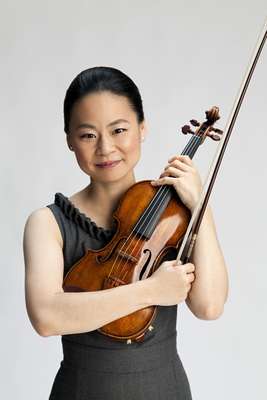
2021
Midori
Violinist, Activist, Educator
Midori (b. 1971, Osaka, Japan) is a visionary artist, activist and educator who explores and builds connections between music and the human experience. Midori breaks with traditional boundaries, which makes her one of the most outstanding violinists of our time. She began her violin studies with her mother, Setsu Goto, at an early age, and was invited at age 11 to perform with the New York Philharmonic in the orchestra’s annual New Year’s Eve concert. In the years since, she has performed with the world’s most prestigious orchestras and musicians of our time, including Leonard Bernstein and Yo-Yo Ma. During the 2021-2022 season, Midori performed the world premiere of Detlev Glanert’s Violin Concerto No. 2 with the Royal Scottish National Orchestra and with NDR Elbphilharmonie Orchestra; she also appeared and recorded with the Festival Strings Lucerne; she performed on tour in the US, Europe and Asia.
Midori is deeply committed to furthering humanitarian and educational goals such as creating more equitable access to music education, particularly in developing regions and for marginalized population groups. To that end, she has founded several non-profit organizations: Midori & Friends (New York); MUSIC SHARING (Japan); Partners in Performance (PiP), which brings chamber music to smaller communities in the U.S.; and the Orchestra Residencies Program (ORP), which supports American youth orchestras. In 2009, MUSIC SHARING received an ACC Fellowship to support musicians to participate in their International Community Engagement Program (ICEP) in Mongolia.
In recognition of her work as an artist and humanitarian, she serves as a United Nations Messenger of Peace, and in 2021, she was named a Kennedy Center Honoree. She also holds academic positions at the Curtis Institute of Music and the Peabody Institute. The most recent recording in Midori’s diverse discography is Beethoven’s Violin Concerto and two Romances with the Festival Strings Lucerne (2020, Warner Classics). She plays the 1734 Guarnerius del Gesù ‘ex-Huberman’ and uses four bows – two by Dominique Peccatte, one by François Peccatte and one by Paul Siefried.
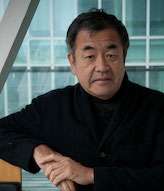
2019
Kengo Kuma
Architect
Kengo Kuma & Associates
Kengo Kuma is recognized as one of the world’s great architects. Renowned for his design and approach, he is a practicing architect, professor, and writer based in Tokyo. Born in 1954 in Yokohama, Mr. Kuma had an early interest in architecture, inspired by Kenzo Tange’s Yoyogi National Gymnasium, which was built for the 1964 Tokyo Olympics. Five decades later, Mr. Kuma has come full circle, as the architect for the Tokyo 2020 National Olympic Stadium. Yokohama, Mr. Kuma had an early interest in architecture, inspired by Kenzo Tange’s Yoyogi National Gymnasium, which was built for the 1964 Tokyo Olympics. Five decades later, Mr. Kuma has come full circle, as the architect for the Tokyo 2020 National Olympic Stadium. In 1979, Mr. Kuma completed his M.A. in Architecture from the University of Tokyo’s Graduate School of Engineering. There, he studied with architect, theorist, and author Hiroshi Hara (ACC 1978). In 1985, Mr. Kuma received his own ACC fellowship to serve as a visiting scholar at Columbia University’s Graduate School of Architecture and Planning for eight months. Following his fellowship, Mr. Kuma returned to Tokyo to establish his first practice, Spatial Design Studio, in 1987. This was soon followed by the founding of his current practice, Kengo Kuma & Associates, in 1990.
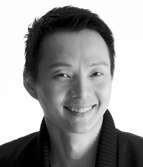
2017
Shen Wei
Founder
Shen Wei Dance Arts
Shen Wei received a grant from the Asian Cultural Council in 1995 to study dance and choreography in New York and to participate in the American Dance Festival. ACC has also proudly supported Shen Wei Dance Arts with multiple grants since its formation. Internationally celebrated as one of the most gifted choreographers of his generation, Shen Wei’s expansive vision, rooted in traditional Chinese aesthetics yet strikingly international, has transformed the face of contemporary performance. Shen Wei’s work offers a unique vision bridging China and the U.S. at a moment when understanding and amity could not be more necessary to our shared future.
In China, Shen Wei is credited with having had a major influence, with others, in creating a new Chinese contemporary dance based on traditional Chinese culture, world influence, and individual creativity. Shen Wei, who has always maintained his practice as a painter and calligrapher, has been creating a series of performative installations and site-specific works that have been presented at museums in the U.S., Asia, and Europe. His paintings have been featured in solo exhibitions in leading galleries and museums around the world.

2015
Duk Hyung Yoo
President
Seoul Institute of the Arts
Duk Hyung Yoo is a prominent cultural figure in Korea and the visionary leader of the Seoul Institute of the Arts, a professional arts training academy renowned both regionally and internationally. Mr. Yoo received a series of grants from ACC in the 1960s and 1970s for such personally-transformative endeavors as study at the Dallas Theater Center, the completion of his master’s degree in theater at Yale University, and the chance to observe theatrical activities throughout the U.S. After returning to Korea permanently, Mr. Yoo took over leadership of the Korean Drama Center, founded by his father, acclaimed playwright Yoo Chi Jin. Over the next several decades, Mr. Yoo transformed the school into the all-encompassing professional arts academy now known as the Seoul Institute of the Arts (SIA). Outside of Korea, Mr. Yoo has developed robust educational and artistic links with other arts schools in Asia, the U.S., and Europe. He also spearheads SIA’s Global Hub project, which “seeks both national identity and global universality to create and promote world-class culture and arts.” The project is dedicated to creating strongholds through which Korean culture and arts can be exchanged around the world.

2013
Amna Kusumo
Director
Yayasan Kelola, Jakarta
Amna Kusumo is a pioneer in the field of arts management in Southeast Asia. Through her visionary work, which has included introducing new ideas about arts administration and resource sharing, she has helped to establish a national arts infrastructure in Indonesia that has allowed various art forms from her country to be known and appreciated throughout the world. She has collaborated with the Jakarta Arts Council to create innovative international programming and to formulate policies to support the activities and development of the arts in Jakarta and throughout Indonesia.
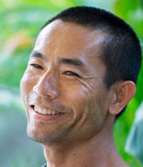
2013
Pichet Klunchun
Choreographer and Dancer
Pichet Klunchun Dance Company, Thailand
Pichet Klunchun, born in 1971, is internationally recognized as the finest male classical Thai dancer of his generation and the individual in whom lies the greatest hope for the future continuity and vitality of his art. Trained in Khon (dance of the Thai royal court) from one of the form’s great masters, Mr. Klunchun is acknowledged by his teachers and peers to be an exemplar who combines brilliant technique, thorough knowledge of the tradition, boundless creativity, and a commitment to teaching.

2013
Chinary Ung
Composer
Composers Institute in Asia; University of California, San Diego
Chinary Ung is an internationally acclaimed composer, a gifted teacher, and an activist for creativity in Southeast Asia. Born in Cambodia in 1942, Mr. Ung came to the United States in 1968 to study clarinet at the Manhattan School of Music with support from the Asia Foundation. Mr. Ung went on to have a very successful career in composition and university teaching, with faculty positions at Connecticut College, Northern Illinois University, University of Pennsylvania, and University of California, San Diego, where he now holds the title of Distinguished Professor of Music. His numerous awards include a Guggenheim Fellowship, two Kennedy Center prizes, the American Academy of Arts and Letters Fellowship, and the illustrious Grawemeyer Award, music composition’s highest award.
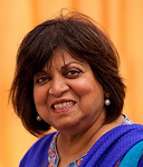
2010
Samina Quraeshi
Writer, Artist, Designer
Shepard / Quraeshi Associates, Inc., Boston
Samina Quraeshi (1944–2013), was an artist, author, and educator whose career spanned her native Pakistan and her adopted home in Massachusetts. Both her visual art and her five award-winning books on Pakistan took inspiration from the Sufi tradition of the Indus Valley. As a lifelong advocate for the arts and design, she served as the assistant director of the Carpenter Center at Harvard University, the director of design for the National Endowment for the arts, and the Henry Luce Professor of Family and Community at the University of Miami. Most recently, she served as the Robert Gardner Visiting Artist at Harvard University’s Peabody Museum.
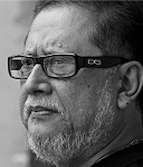
2008
Ratan Thiyam
Founder and Director
Chorus Repertory Theatre, Manipur
Indian playwright and theater director Ratan Thiyam is considered to be one of the most important and influential art-makers on the international theater scene. In October of 2000, New York Times critic Margo Jefferson hailed Ratan Thiyam as a “genius” and called the experience of seeing his work “transcendent.” The founder and director of the Chorus Repertory Theatre in Manipur, India, Mr. Thiyam has created a body of work that has received broad acclaim in the East and West. He is the recipient of the Sangeet Natak Akademi Award in Direction and the Padma Shri, a civilian award bestowed by the government of India.
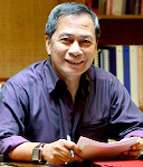
2007
Nestor O. Jardin
President
Cultural Center of the Philippines, Manila
Nestor O. Jardin is a distinguished arts advocate and educator from Manila. During his extensive career, he has championed the arts and artists of Southeast Asia and the Philippines. He has served as President of the Cultural Center of the Philippines (CCP), Commissioner of the National Commission for Culture and the Arts, and Chairman of the Advisory Council of the Philippine High School for the Arts. He is currently President of the Cinemalaya Foundation and Project Director of the CCP Complex Development Program.
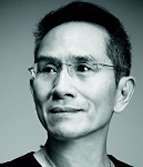
2006
Lin Hwai Min
Artistic Director
Cloud Gate Dance Theater, Taipei
Lin Hwai-Min is the founder and artistic director of Cloud Gate Dance Theater, the first contemporary dance company in the Chinese- speaking world. Heralded as “the most important choreographer in Asia,” he has been the recipient of the Taiwan National Award for the Arts, the Ramon Magsaysay Award, and the International Movimentos Dance Prize’s Lifetime Achievement Award. Time magazine has named him one of “Asia’s Heroes,” and in 2003, his piece “Moon Water” was named best dance of the year by the New York Times.
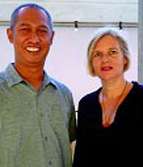
2005
Mella Jaarsma and Nindityo Adipurnomo
Founders
Cemeti Art House, Yogyakarta
Mella Jaarsma and Nindityo Adipurnomo are Indonesia-based artists and the founders of Cemeti Art House in Yogyakarta. They are at the forefront of the creative community in Indonesia, organizing several exhibitions and residencies for both Indonesian and international artists each year. Their own work has been presented widely at many international exhibitions, including the Gwangju Biennale, the Asia Pacific Triennale, and the Yokohama Triennale. In 2010, they received the Yogyakarta Biennale Art Award.
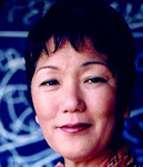
2003
Judy Mitoma
Director
Center for Intercultural Performance, University of California, Los Angeles
Judy Mitoma founded and chaired UCLA’s Department of World Arts and Cultures, the only arts department in the United States based on interdisciplinary, international, and intercultural research with a focus on performance. She is also the founder of the UCLA Center for Intercultural Performance, whose Asia Pacific Performing Arts Exchange (APPEX) program has hosted more than 300 artists in residential retreats, performance projects, and creative collaboration.
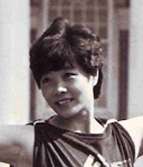
2002
Yang Meiqi
Founder
Guangdong Modern Dance Company, Guangzhou
Judy Mitoma founded and chaired UCLA’s Department of World Arts and Cultures, the only arts department in the United States based on interdisciplinary, international, and intercultural research with a focus on performance. She is also the founder of the UCLA Center for Intercultural Performance, whose Asia Pacific Performing Arts Exchange (APPEX) program has hosted more than 300 artists in residential retreats, performance projects, and creative collaboration.
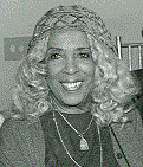
2000
Ellen Stewart
Founder and Artistic Director
La MaMa Experimental Theater Club, New York
Ellen Stewart (1919–2011) was the founder and longtime director of the pioneering La MaMa Experimental Theater Club in New York City. She was the recipient of a MacArthur Foundation “genius” grant, a Tony Honor for Excellence in Theater, and Japan’s Order of the Sacred Treasure, Gold Rays with Rosette. She was also inducted into the Broadway Theater Hall of Fame. Ms. Stewart was instrumental in introducing to American audiences some of the world’s most influential theater artists, and she herself staged, composed, directed, and wrote librettos for original folk-opera spectacles.
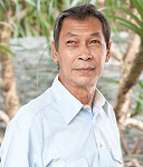
1999
Proeung Chhieng
Dean, Faculty of Choreographic Arts
Royal University of Fine Arts, Phnom Penh
Proeung Chhieng was the vice rector and dean of choreographic arts at the Royal University of Fine Arts in Phnom Penh. He was a premier dancer with the Royal Ballet of Cambodia, having joined the ensemble when he was just eight years old. After surviving rule under the Khmer Rouge, Mr. Chhieng worked to create links among the refugee communities in Thailand, the United States, and Europe, and he guided the efforts to rebuild his country’s fragmented and largely undocumented classical dance repertory.
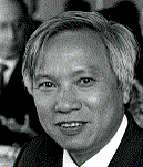
1998
Nguyen Van Huy
Director
Vietnam Museum of Ethnology, Hanoi
Dr. Nguyen Van Huy was the founding director of the Vietnam Museum of Ethnology, the innovative exhibitions of which have earned national and international acclaim. Dr. Nguyen is known for pioneering a new direction in ethnological research using a sociological approach and has taken part in many research projects in the United States. He has received the Chevalier de L’Ordre des Arts et des Lettres from the government of France.

1997
Beate Gordon
Arts Consultant and Writer
New York
Beate Gordon (1923–2012) held tenures as the director of the performing arts programs at both Japan Society and Asia Society. She was the first civilian American woman to arrive in post-war Japan, and she helped to co-author the Japanese Constitution, which was so well conceived that it has remained unamended since it was originally written. She was notably responsible for drafting the document’s Article 24, which defined marriage as being based on mutual consent and equality of the sexes, granting rights to women at a time when social injustices were deeply embedded in societies around the world.
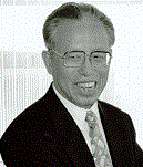
1996
Ma Chengyuan
Director
Shanghai Museum of Art
Ma Chengyuan (1927–2004) was a Chinese archaeologist, epigrapher, and president of the Shanghai Museum, and he was credited with saving many priceless artifacts during the Cultural Revolution. An authority on ancient Chinese bronzes, Mr. Ma joined the Shanghai Museum soon after its founding in 1952 and helped select items for its original collection of about 13,000 ancient Chinese bronzes, porcelain, paintings, jade, calligraphy, furniture, and other objects. He published more than 80 books and papers on ancient bronzes, and one of his greatest achievements was overseeing the construction and reopening in 1996 of the museum’s current home.
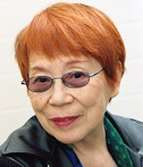
1995
Setsu Asakura
Stage Designer
Tokyo
Setsu Asakura (1922–2014), from Japan, began as a painter whose achievement was recognized with Belgium’s prestigious Salon de Printemps Prize. However, it was her work as an acclaimed stage and set designer that brought her international renown. She was honored in Hollywood and Japan with retrospective exhibitions tracing the achievements throughout her career, ranging from work for Greek and Kabuki classics to designs for contemporary American theater.
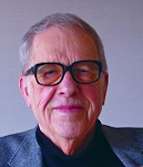
1993
Donald Richie
Film Critic and Writer
Tokyo
Ohio-born Donald Richie (1924–2013) moved to Japan soon after World War II, and lived there for much of the rest of his life, save for a period of graduate study at New York’s Columbia University and a stint as curator of film at the Museum of Modern Art. Mr. Richie is best known for his groundbreaking writings on Japanese cinema and for being one of the first to introduce Japanese film to the West, and his numerous books on a diversity of subjects about Japanese life and culture have done much to interpret Japanese culture for Americans.
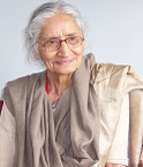
1992
Kapila Vatsyayan
Director
Indira Gandhi National Centre for the Arts, New Delhi
Kapila Vatsyayan, a leading scholar of classical Indian dance and Indian art and architecture, was the founding director of the Indira Gandhi National Centre for the Arts. She is the author of many books and has served as a member of the UNESCO Executive Board and of the Upper House of Indian Parliament. She has also been a secretary to the Ministry of Education, Department of Arts and Culture, and in this role has been responsible for the establishment of many institutions of higher education in India.

1991
Chou Wen-chung
Director
Center for U.S.-China Arts Exchange, Columbia University
Chou Wen-Chung is a composer of contemporary classical music who received his music training at the New England Conservatory and Columbia University. Mr. Chou has received numerous recognitions including two Guggenheim fellowships, a National Institute of Arts and Letters award, and a National Endowment for the Arts commission. He was the Founder-Director of the Fritz Reiner Center for Contemporary Music, serves as a member of the American Academy of Arts and Letters, and is an honorary member of the International Society for Contemporary Music. Mr. Chou’s compositions have been performed by orchestras throughout the world, including the New York Philharmonic, Chicago Symphony, San Francisco Symphony, and Berlin Philharmonic.
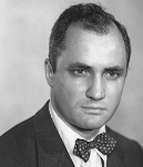
1990
Sherman E. Lee
Former Director
The Cleveland Museum of Art
Sherman Lee (1918–2008) was an American academic, writer, art historian, and expert on Asian art. Dr. Lee served as an art advisor to Mr. and Mrs. John D. Rockefeller 3rd, helping them build their exceptional art collection that was later donated to the Asia Society. In his earlier career, Dr. Lee was Curator of Far Eastern Art at the Detroit Institute of Arts, Associate Director of the Seattle Art Museum, Director of the Cleveland Museum of Art, the author of more than a dozen books, and organizer of some of the most important exhibitions of the late 20th century. The Ruth and Sherman Lee Institute for Japanese Art was founded in his honor at the Clark Center near Fresno, California.
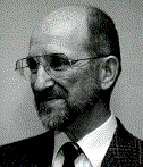
1988
James R. Brandon
Professor
Department of Drama and Theatre, University of Hawai
James R. Brandon (1927-2015) was a force in the development of Asian theater studies since the 1960s with his work on Southeast Asian, pan- Asian, and especially Japanese forms. Dr. Brandon was a Professor of Theater at the University of Hawaii beginning in 1968, and he helped build a program around the intersection of scholarship and the performance of Asian genres. He was known one of the most widely recognized and highly honored theater instructors anywhere in the world. The Japanese government has recognized him with the Order of the Rising Sun, Gold Rays with Rosette. Other honors he has received include Fulbright grants for research in Japan, the Fujio Matsuda Scholar Award, and the International Theatre Institute’s Uchimura Prize.
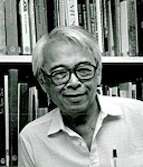
1987
Jose Maceda
Chairman
Department of Music Research, College of Music, University of the Philippines
José Maceda (1917–2004) was born in Manila and studied piano and composition at École Normale de Musique de Paris in France. After returning to the Philippines to play professionally, he moved to the United States to study musicology at Columbia University and anthropology at Northwestern University. As an ethnomusicologist, Professor Maceda devoted much of his time to studying the music of the Philippines and Southeast Asia. He wrote extensively about his research for publications in North America, Europe, and Asia. Among his many honors were the Fumio Koizumi Prize for Ethnomusicology in Tokyo and the title of National Artist of the Philippines. The French government named him an Officier dans l’Ordre National du Mérite and a Chevalier de la Légion d’Honneur.
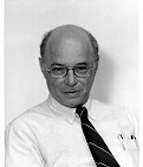
1986
John M. Rosenfield
Abby Aldrich Rockefeller Professor of Fine Arts
Harvard University
John M. Rosenfield (1924–2013) was an American art historian with a specialization in Japanese art. In 1971, he was appointed the Abby Aldrich Rockefeller Professor of East Asian Art at Harvard University, where he served for more than twenty-five years as a professor and curator of Asian art. His other awards include the Smithsonian Institution’s Charles Lang Freer Medal for distinguished contribution to the knowledge and understanding of Oriental civilizations as reflected in their arts, the Yamagata Banto prize (2001), and the Order of the Rising Sun from the Japanese Government for his contributions toward fostering mutual understanding between the United States and Japan (1988).
Blanchette Hooker Rockefeller Award
The Blanchette Hooker Rockefeller Award was established in 2009 in honor of ACC’s first Chairman, the wife of John D. Rockefeller 3rd. Mrs. Rockefeller shared her husband’s passion for the arts and cultures of Asia and his vision for creating a better world through cultural exchange. The BHR Award recognizes philanthropists who have partnered with ACC and made outstanding contributions to advancing international dialogue, understanding, and respect in Asia and the U.S.
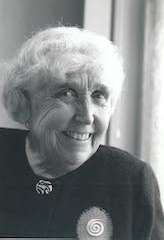
2019
Elizabeth J. McCormack
Chairman Emeritus
Asian Cultural Council
A tireless philanthropic leader and champion of cultural exchange, Elizabeth J. McCormack is unparalleled in the history of the Asian Cultural Council. Her decades of steadfast support for the ACC, including twenty-two years as Chairman of the Board of Trustees, sustained the organization and enabled it to flourish and grow. Miss McCormack’s devotion to ACC grew from her belief in the vision of ACC’s founder and Miss McCormack’s mentor, John D. Rockefeller 3rd, who recognized the power of international cultural exchange as a vehicle to create understanding and respect, in service to a more peaceful world. Her indefatigable efforts ensured ongoing support for the organization, opening countless doors, and building a circle of determined donors. Miss McCormack’s dedication of more than 40 years as a trustee, and her exceptionally generous personal philanthropic commitment of over $2 million to ACC has provided unrestricted support for the organization, giving it the means to provide transformational opportunities for generations of artists and scholars to connect throughout the world organization and enabled it to flourish and grow. Miss McCormack’s devotion to ACC grew from her belief in the vision of ACC’s founder and Miss McCormack’s mentor, John D. Rockefeller 3rd, who recognized the power of international cultural exchange as a vehicle to create understanding and respect, in service to a more peaceful world. Her indefatigable efforts ensured ongoing support for the organization, opening countless doors, and building a circle of determined donors. Miss McCormack’s dedication of more than 40 years as a trustee, and her exceptionally generous personal philanthropic commitment of over $2 million to ACC has provided unrestricted support for the organization, giving it the means to provide transformational opportunities for generations of artists and scholars to connect throughout the world.
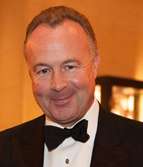
2018
Hans Michael Jebsen
Chairman
Jebsen & Co., Ltd.
Hans Michael Jebsen first joined ACC’s Hong Kong Friends’ Committee in 2004 as Chairman. Establishing the Hans Michael and Désirée Jebsen Fellowship in 1997, he has supported 18 individual fellows in a variety of fields to further develop their artistic careers and grow their global networks. Mr. Jebsen has served on the ACC’s Board of Trustees since 2003 and became Founding Chairman of the ACC Hong Kong Foundation in 2015. His extraordinary gift of $20 million HKD enabled the establishment of the ACC’s Hong Kong Endowment to ensure future exchange opportunities for ACC’s fellows in perpetuity. Mr. Jebsen’s philanthropic leadership has inspired and created life-changing experiences for countless ACC artists and cultural specialists from China, Hong Kong and Macau.
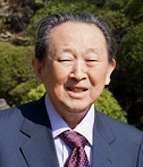
2012
Seiji Tsutsumi
President
The Saison Foundation
Seiji Tsutsumi (1927–2013) became involved with the work of the JDR 3rd Fund in the late 1970s, and became one of ACC's greatest advocates. In 1983, he established ACC's first office in Asia in Tokyo, Japan, and seeded the Japan-United States Arts Program with an endowment gift of $2 million. Because of his generosity, hundreds of artists and scholars from Japan, other parts of Asia, and the United States have been able to take part in ACC’s cultural exchange activities, pursue extensive programs of research and study, and develop their creative careers while building important relationships and global networks. Mr. Tsutsumi was a member of ACC's Board of Trustees for nearly thirty years, applying his love of the arts and inspired leadership to serve ACC's mission.
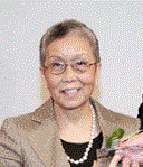
2009
Dr. Deanna Ruth Tak Yung Rudgard, O.B.E.
Non-executive Director
Hysan Development Company Limited
Deanna Lee Rudgard was recognized for her great personal contribution to ACC’s work and as a representative of the Lee family and the Lee Hysan Foundation, which was ACC’s first Hong Kong donor. The Foundation was a key partner when ACC’s Hong Kong Arts Program was launched in 1986. Since then, the Lee Hysan Foundation has provided generous support enabling 44 arts professionals from Hong Kong to take part in ACC-designed fellowships in the U.S. The Lee Hysan Foundation’s endorsement of ACC has been pivotal, for this extraordinary support has attracted participation from other partners and ensured the development of a stable program that continues to thrive.
 ACC New York
ACC New York